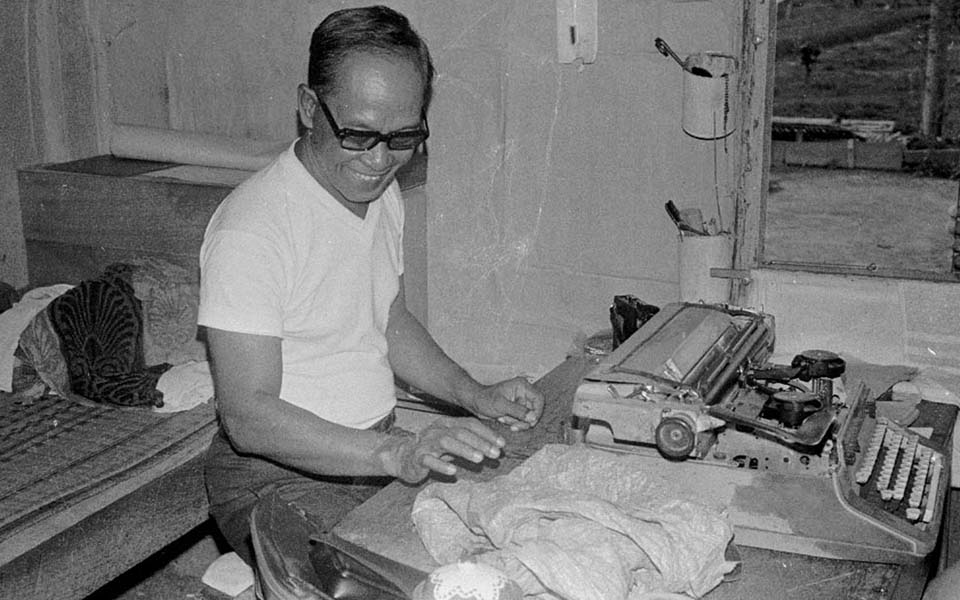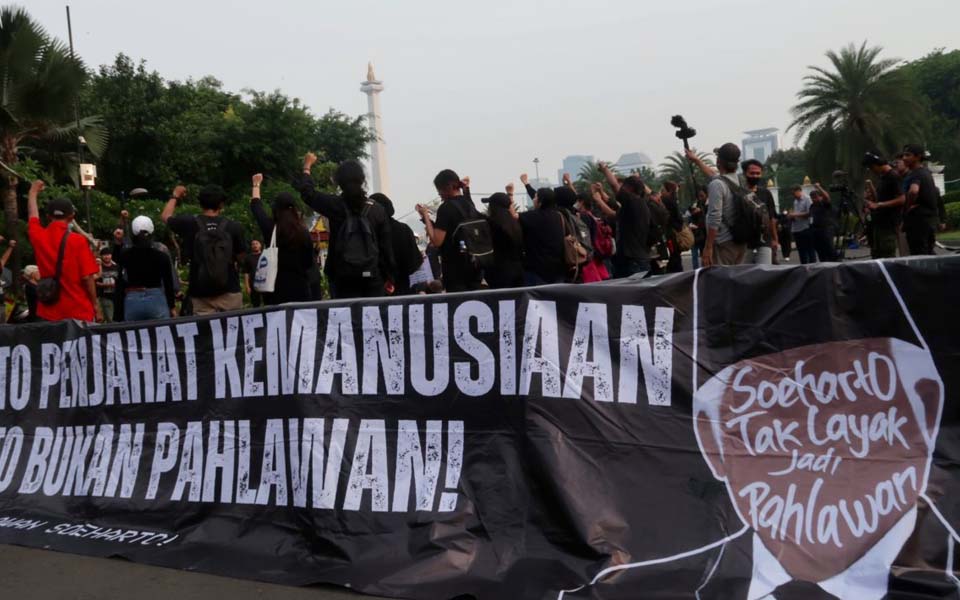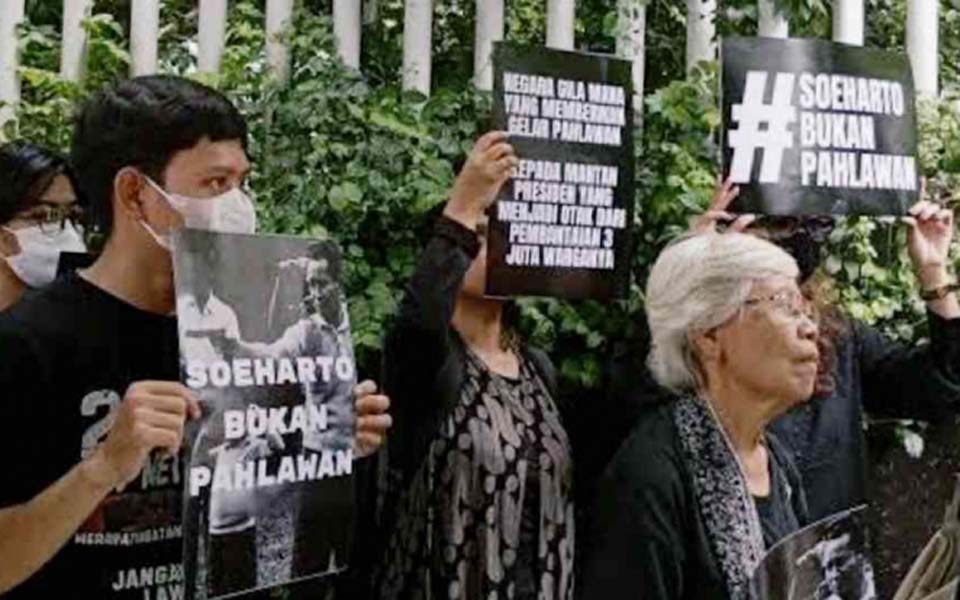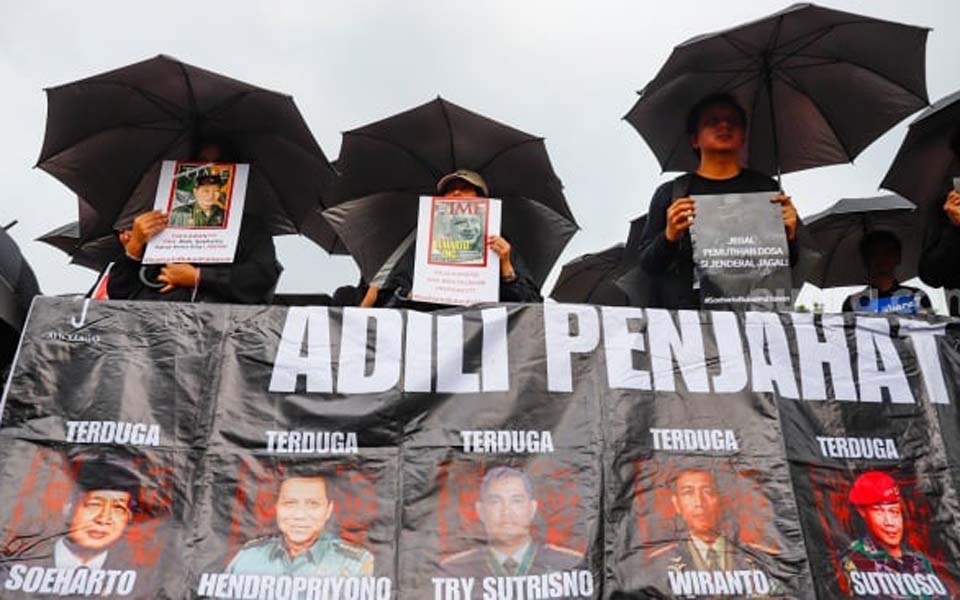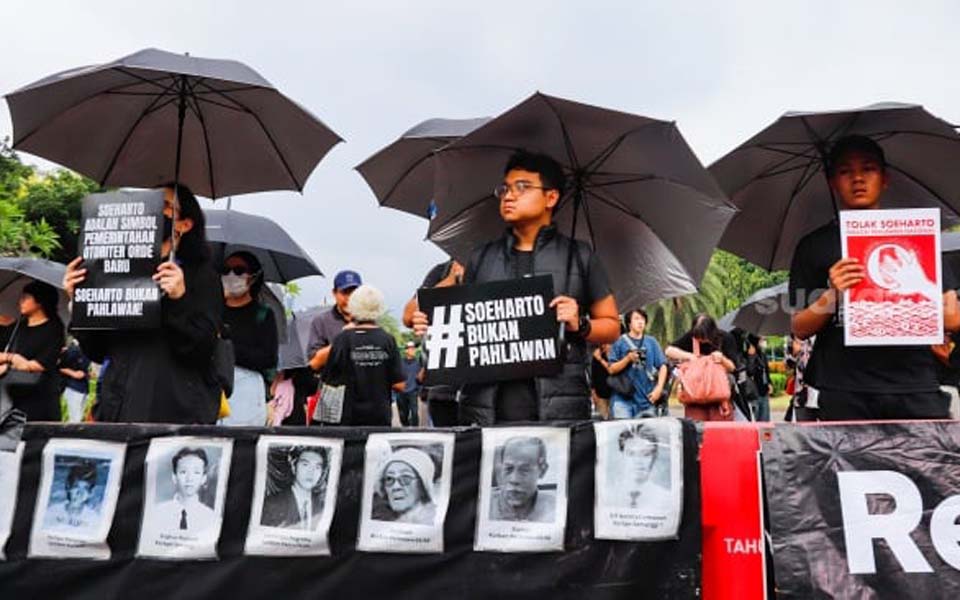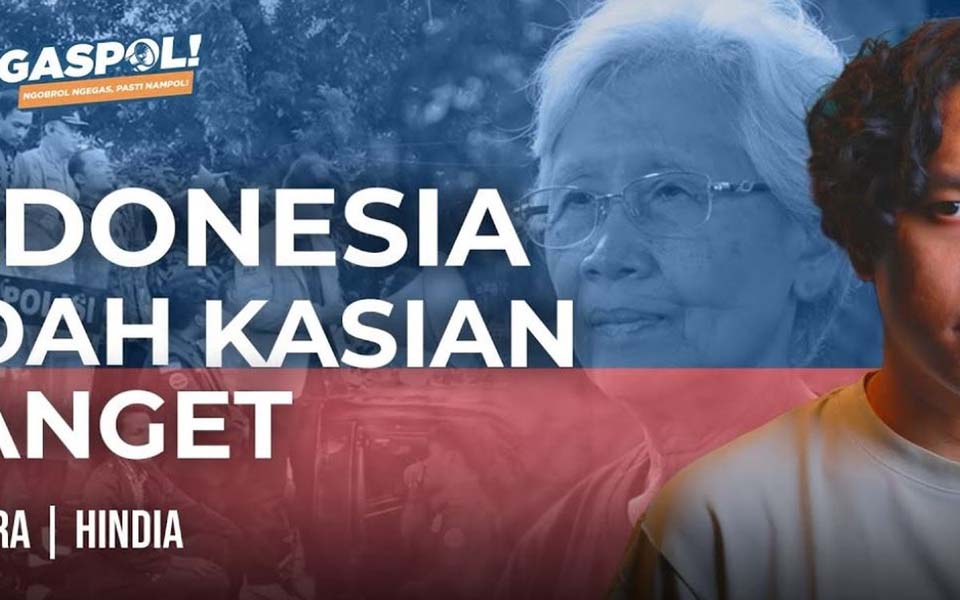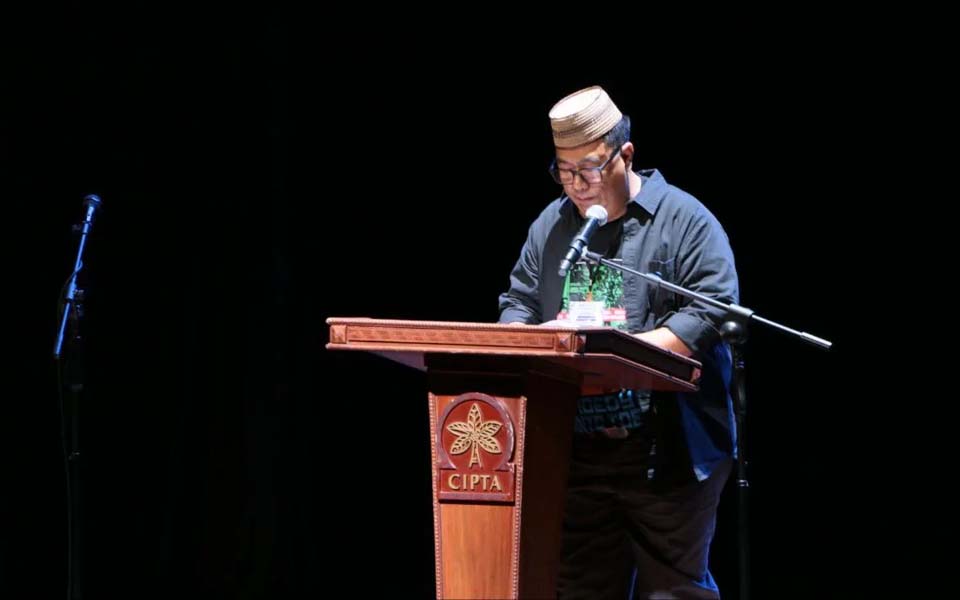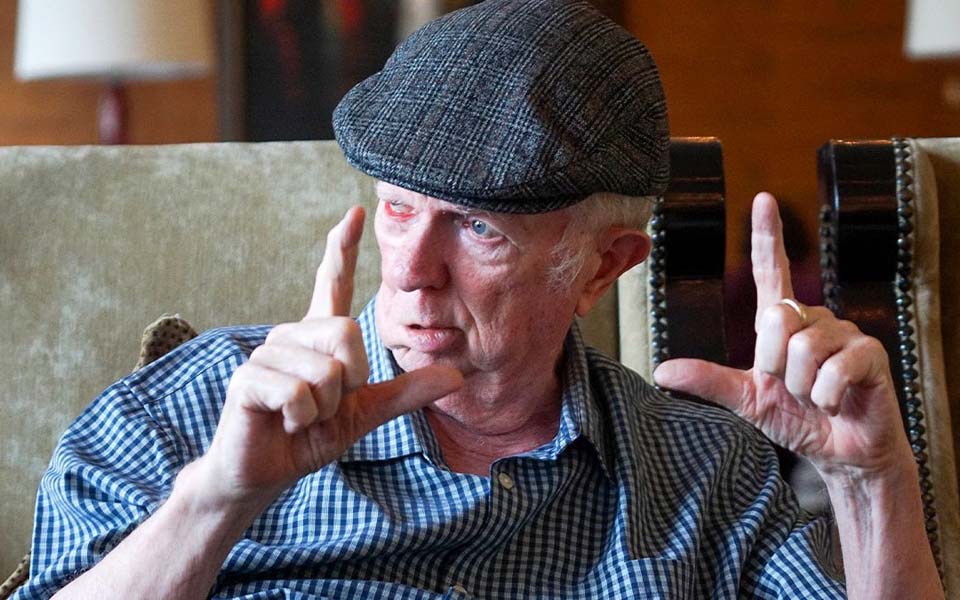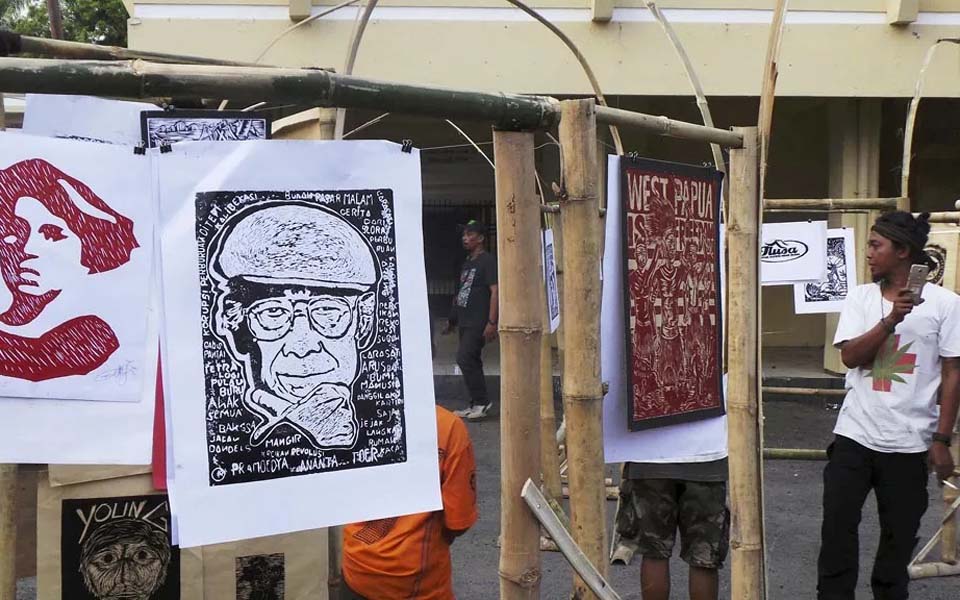Iwan Kurniawan – In 1979, shortly after being released from Buru Island in the Maluku Islands, Pramoedya Ananta Toer, a writer and member of the People's Cultural Institute (Lekra), together with Hasjim Rachman and Joesoef Isak, founded the Hasta Mitra publishing house.
Its office was located at Isak's house in Duren Tiga, Jakarta. A small warehouse behind the house was used as a place to design books.
Joesoef was a journalist from the generation who fought in the war of independence who later became the chairperson of the Indonesian Journalists Association (PWI) in Jakarta. The editor-in-chief of the daily Merdeka, founded by Burhanuddin Mohammad Diah, was then appointed by Indonesia's founding president Sukarno as secretary general of the Asia-Africa Journalists Association. When the events of 1965 broke out, Isak was detained in Salemba prison, Jakarta, for ten years.
Hasjim was the owner of Bintang Timoer (Eastern Star), a daily with the largest circulation before 1965. He once smuggled weapons from Malaysia to Sumatra in the war against the Dutch.
Pram – Pramoedya's nickname – managed the cultural column in the daily Lentera (Torch). Hasjim was also imprisoned on Buru Island with Pram.
The three of them decided to publish the four novels that Pram had written while in Buru.
The novels Bumi Manusia (This Earth of Mankind), Anak Semua Bangsa (Child of All Nations), Jejak Langkah (Footsteps) and Rumah Kaca (House of Glass) later became known as the Buru Tetralogy or Buru Quartet. Even on the cover of the book they included the words "Works of Buru Island".
According to Maxwell Ronald Lane, the translator of Pram's books into English, who is usually called Max Lane, Pram typed his manuscripts on paper without margins. He used the entire page because paper was very scarce on Buru Island.
"What's even crazier was that there were no scribbled notes. Very few changes", Lane told Tempo on Sunday, February 9.
Pram wrote by relying entirely on his memory. "Sometimes, if he forgot or was not sure, he asked people on Buru Island, where there were also many intellectuals. So he got a lot of input from the other political prisoners", Lane said.
Bumi Manusia and Anak Semua Bangsa were published in 1980. The publication of the books received a lot of support. As a result, Vice President Adam Malik, the head of the Operational Command for the Restoration of Security and Order (Kopkamtib) Admiral Sudomo and Attorney General Ali Said seemed reluctant to ban them.
They made a public statement that the fate of the books would be left to the readers to decide.
The military actually wanted to ban the books immediately, but Malik instead received a visit from Pram, Hasjim and Joesoef. In fact, according to Malik, every Indonesian school child should have been required to read Bumi Manusia so they would know how their parents confronted colonialism. That is why, Lane said, the military did not immediately ban the book.
This contradicts the fact that Malik was president Suharto's vice president, who ordered the arrest of Pram and thousands of others in 1965. Suharto was also the leader of the program of mass murder against sympathisers or members of the Indonesian Communist Party (PKI) and the Indonesian National Party (PNI) led by Sukarno.
On the other hand, according to Lane, Malik was very anti-PKI because his party, Musyawarah Rakyat Banyak or Murba, strongly disagreed with the PKI. "On the other hand, there was a spiritual bond with the people from Buru Island because they were both directly involved in creating Indonesia", he said. Malik was one of the young men who abducted Sukarno and Mohammad Hatta in 1945 and took them to Rengasdengklok in West Java so that they would proclaim independence sooner.
Max Lane describes the birth of the Buru Tetralogy in his book "Indonesia Out of Exile: How Pramoedya's Buru Quartet Killed a Dictatorship" published by Penguin Random House in 2022.
There he outlines how Malik's support did not reduce the pressure on Hasta Mitra. Hasjim was said to have received many phone calls from people claiming to be from the prosecutor's office and even President Suharto.
Bumi Manusia was finally banned by the Attorney General's Office in May 1981, nine months after its publication and circulation. The other three books were banned one by one. The official reason was that the book depicted "inter-class conflict", although they did not explain what kind of conflict this meant.
The officer from the prosecutor's office who interrogated Hasjim concluded that Bumi Manusia depicted class conflict, Anak Semua Bangsa presented internationalism, Jejak Langkah was the Communist Manifesto and Rumah Kaca was about a communist society.
Lane has examined the territorial assessment document issued by the Department of Defence and Security in September 1980. The document stated that Pram was a Lekra leader who was involved in the alleged coup attempts in 1965 by the September 30th Movement (G30S) and was classified as a category B prisoner. During his detention in Buru until his release, according to the document, Pram remained a hardline communist follower.
In its analysis of the novels, the Defence Department noted that it contained depictions of class struggle, which is considered a hallmark of communist thought. It claimed that this was neatly hidden so that it would not be noticed by many readers. The department did not ban the book, only warning readers of the "latent communist danger" that could penetrate in various ways, including culturally.
According to Lane, the regime's ambiguous attitude towards Pram's book was caused by two things. First, the prosecutor's efforts at terrorising Joesoef and Hasjim via telephone, summonses and interrogations were fruitless. They continued to publish and sell Pram's book. Second, banning the book was the same as banning Indonesia because the story in the Buru Tetralogy is the journey of Indonesia's birth. Banning it meant preventing the most inspiring story about this nation being read.
Despite this, the ban still went ahead and hit Hasta Mitra financially, though not politically. Hasta Mitra did not stop the publication of Pram's other two novels from the Buru Tetralogy, namely Jejak Langkah and Rumah Kaca, as well as “Nyanyi Sunyi Sebuah Bisu” (Silent Song of a Deaf Mute), a collection of notes by political prisoners. Following the ban, pirated books and photocopied versions of Pram's books circulated widely.
And in fact Pram's name grew even bigger and many students invited him to discussions or to visit their homes. This was not without consequences. Several students were arrested for discussing this books and the student press was banned for publishing an article on an interview with Pram.
This Earth of Mankind, Max Lane's translation of Bumi Manusia, was published by Penguin Books in Australia in 1982 and was on the Sydney Morning Herald's bestseller list for several weeks. Lane translated the book over several months starting in 1980. According to him, there were no particular problems in the translation. There were only the usual issues such as the presence of words or metaphors that are commonly used in Indonesia but not outside Indonesia.
Lane gave as an example how Minke (the central protagonist and narrator in Bumi Manusia) is described as someone who likes to flirt with women so he is called a "crocodile". "I translated crocodile as crocodile", he said. But there was criticism that he should not have used the term crocodile, but wolf, because in the West, especially in the United States, men who like to flirt with women are called wolves.
"But I maintained [the word] crocodile because, from the context, from reading it, English speakers would understand the meaning of crocodile and people would gain new knowledge that in Indonesia people like that are called crocodiles, not wolves. Their vocabulary would increase. Why does everything have to be westernised?"
According to Lane, Pram's work also inspired student activists in the 1980s and 1990s. "They got inspired by the values in Pram's books. Values of humanity, justice, resistance", he said. "For students who later became activists, his works awakened a sensitivity to history."
There is a contradiction in the history of Suharto’s New Order. The anti-communist propaganda of the New Order, Lane explained, was the most virulent propaganda in the world. PKI members were labelled as atheists, torturers and the like.
"[But] when people read Bumi Manusia, where was the barbarity? They say people were exiled to Buru Island because they were barbaric, but why is the book like this? There's a contradiction right", he said. "Maybe the researchers of New Order history are lying. So people become more interested in reading history".
– In Tempo's print edition this article was published under the title The Tetralogy that Shook the New Order.
[Translated by James Balowski. The original title of the article was "Tetralogi Pulau Buru yang Mengguncang Orde Baru".]
Source: https://www.tempo.co/arsip/tetralogi-pulau-buru-pramoedya-1207647





